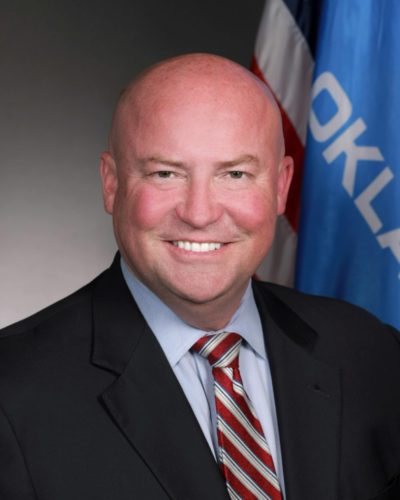By Oklahoma Institute for Child Advocacy CEO Joe Dorman
This week, the Oklahoma Health Care Authority (OHCA) is expected to consider a rule that will terminate eligibility for Medicaid if some mail communications are “returned to sender.” This rule, as written, requires a “prompt redetermination of eligibility” whenever a member’s (child’s) mail is returned to the agency as unforwardable, with address unknown, and the Oklahoma Health Care Authority has “made a reasonable, but unsuccessful attempt to verify the member’s current address.”
The rule further states that advance notice is not required to be given to the member when the eligibility is terminated due to returned mail. However, notice will be sent to the member by mail and email if the agency has the email address on file, along with notice posted to the member’s SoonerCare account. The rule concludes that the member’s eligibility will be reinstated if the whereabouts are determined prior to the end of the eligibility period.
The intent of this rule is to reduce fraud and waste. However, it is the opinion of the Oklahoma Institute for Child Advocacy (OICA) that this rule is ill-conceived, poorly-written, and will further increase the number of uninsured children in Oklahoma well-beyond the 70,000 (or seven percent of all children) who currently do not have health insurance coverage.
Adding insult to injury, the children who are most likely to lose their insurance are those who need it the most. SoonerCare (or Medicaid) helps those children from families living in poverty. Currently, our state has 217,000 children living at or below the poverty-line, almost one-in-four Oklahoma kids.
How many of those kids will lose their current Medicaid coverage? It is tough to tell, but the number will be significant. Oklahomans living in poverty are often “on the move” based on where jobs are available. Many bounce back and forth or “couch surf” between the homes of different family members. The United State Interagency Council on Homelessness estimates that Oklahoma has an estimated 3,871 experiencing homelessness on any given day.
In addition, public school data reported to the U.S. Department of Education shows that over 26,000 public school students experience homelessness over the course of one year. Of that total, 1,229 students were unsheltered, 2,439 were in shelters, 642 were in hotels/motels, and 21,958 were doubled up. Most of them, for obvious reasons, do not have reliable mail addresses.
Beyond the problems represented by poverty and homelessness, the US Post Office cannot even deliver to all of our residents’ home addresses. Despite a growing population and more mail, the number of post offices continues to drop every year, leading to significantly diminished services in rural areas. In my hometown of Rush Springs, residents can only receive mail via P.O. boxes; mail addressed to most home addresses will be returned. If you cannot afford a P.O. box, you cannot receive mail. You can bet there are going to be a lot of people in my town, and many others, who lose their Medicaid coverage because of this rule.
The OHCA’s back-up plan is to email the individual caregiver on the paperwork. What if the individual provides their work email address and subsequently moves jobs? If they lose access to that email address, they also lose their insurance.
OICA does not question the need to verify information, but we call upon the OHCA to consider these issues and provide options other than mail and email to determine eligibility. We ask they consider adding in options to determine location through the State Department of Education and the local school of last residence, the Department of Human Services, and the Oklahoma Tax Commission as other steps in the process prior to termination.
To become a top ten state, Oklahoma cannot afford to insure fewer of our youngest residents, especially those who are the most impacted by poverty. Our state ranks 40th overall in Health by the Annie E. Casey Foundation. If we are to improve, reducing coverage because of an ill-conceived agency rule is not the right way to go.



Meanwhile, we are paying for the prenatal care for illegal aliens. Go figure.